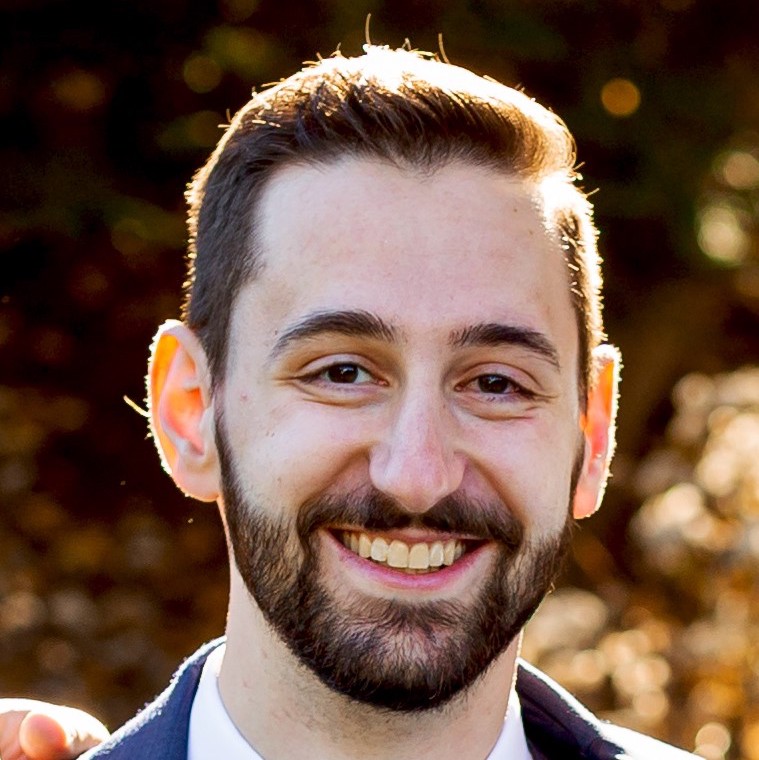|
Getting your Trinity Audio player ready...
|
Today the Church celebrates the Feast of the Ascension, although in many U.S. dioceses it will not be celebrated until Sunday. The feast evokes many thoughts and feelings. It tells us we’re near the end of the Easter season. We may wonder where the time went. We might be looking forward to Pentecost and anticipating the newness of the Holy Spirit. Or, we might be remembering ham dinner and wondering how we gained so much weight in only forty days.
But rarely are we thinking about the actual Ascension, mostly because there doesn’t seem to be much to think about. Of course Jesus had to go back to Heaven, and we should be happy for that. For many years, I didn’t see the Ascension as having any more significance than this. It was a necessary bookend on the Easter narrative, something to cap off the story, but had little bearing on me. If anything, it brought a certain sadness to it. Jesus is gone; and I, for one, would appreciate being able to sit and chat with Him.
In fact, the Ascension is integral to the Paschal Mystery. As the first Eucharistic Prayer says, the Mass is the memorial of Christ’s “blessed Passion, the Resurrection from the dead, and the glorious Ascension into heaven.” The Ascension is not an add on; it is as essential as the crucifixion.
Orthodox. Faithful. Free.
Sign up to get Crisis articles delivered to your inbox daily
The reason is what the Church Fathers called “recapitulation.” Christ didn’t come just to redeem humanity. Because He didn’t come just to redeem; and He didn’t come just for humanity.
Humanity began in the blessings of the Garden of Eden. In such a paradise, the whole of nature seemed to live in harmony, with Adam as the steward. After the Fall, mankind slid downward into the pits of suffering and sin. Jesus condescends into this pit and marries Himself to us by the Incarnation. He descends even further in His Passion, pushing humanity’s trajectory to the absolute lowest point it can go. But there, the arrow reverses. Christ dies and after three days is raised.
But, being united to us as man, all of mankind is raised with Jesus. In the Resurrection, Jesus restores us to something like our original paradise. He shows for us a new body, untouchable by the rot of sin and decay, and walks the earth for forty days in much the same manner as Adam must have walked in the Garden of Eden. Humanity’s fortunes have followed one big U: starting off high, falling down, and then being raised back up to where we were originally.
But God is not content with this. For the first forty days after Easter, mankind is redeemed. But at the Ascension, mankind is elevated. The Resurrected Christ is still joined to us, still sharing our humanity. When He ascends into Heaven, He brings human flesh higher than it ever went before: to the very throne of God. The Ascension is not just remembering Jesus’ ascending to Heaven. It’s also promising us our own ascension, both individually and as collective humanity.
This alone is worth celebrating. We are more than redeemed. But the Fathers’ idea of recapitulation extends beyond even this. Just as we are raised by being joined to Christ, so too the whole creation is renewed by being joined to us. In the Ascension, we are promised a new earth, as in the Resurrection we are promised a new body. The finality of existence won’t be this world, marred by sin. It will be the life of Heaven. The Paschal Mystery truly makes a new creation—not only for mankind but for all of nature over which he was named steward. Just as we are raised by being joined to Christ, so too the whole creation is renewed by being joined to us. In the Ascension, we are promised a new earth, as in the Resurrection we are promised a new body.Tweet This
As St. Paul saw, “creation waits with eager longing for the revealing of the children of God.” Because when these children—we humans—are revealed, “creation itself will be set free from its bondage to decay” (Romans 8:19-21). This is recapitulation, so boldly preached by the Fathers of the Church. In the Paschal Mystery, Christ sums up the whole of creation and elevates it to a level never before enjoyed.
Of course, we may not feel it right now. Like the Resurrection, the Ascension is completed but not yet fully realized here below. Christ has won the victory, but we in our own lives, and in the history of the world, must still walk through the old battlefield. But this is why the Ascension is such an important feast. The temporary realities of this world can make us forget the eternal guarantees to come. We need to remember the Paschal Mystery, every Sunday and every year.
It’s easier to remember the Passion and Resurrection. Less often do we remember the Ascension. But the Ascension is there, baked into the Easter mystery. It is already anticipated in the Easter Vigil; the great Easter chant, the Exultet, cries out: “O happy fault, that earned so great, so glorious a Redeemer!” The sin of Adam can indeed be called a happy fault. Not only was it undone by our Savior, but it led to even greater blessings—the elevation of humanity, and all of creation, to the loftiest heavens.
Such is the mercy of our God, and such is the greatness of this feast. Let’s have a fittingly happy Ascension—whether on a Thursday or a Sunday.
[Image: “Ascension of Christ” by Pietro della Vecchia]
